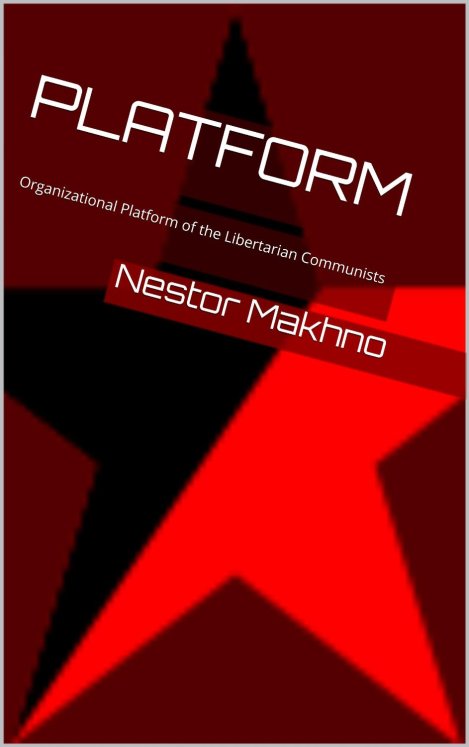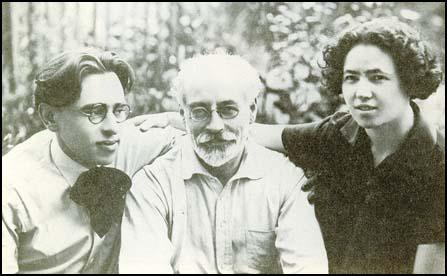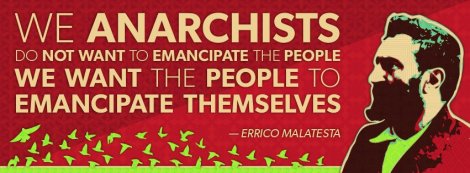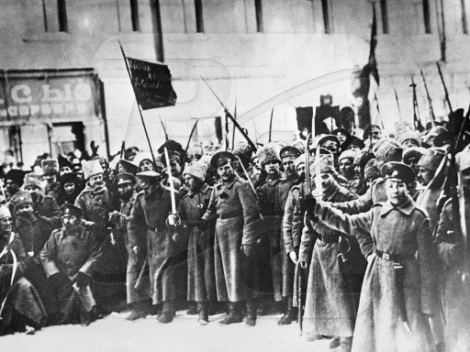
Sébastien Faure
Recently I noticed some renewed interest in the idea of an “anarchist synthesis,” a concept championed in the 1920s by such anarchists as Voline and Sébastien Faure. In Volume One of Anarchism: A Documentary History of Libertarian Ideas, I included excerpts from Voline’s article on an anarchist synthesis that Faure had printed in his Encyclopédie Anarchiste. Today, I am reproducing parts of an article Faure wrote in 1928 on the anarchist synthesis. Fundamentally, Faure and Voline were trying to transcend the sectarian differences that existed among anarchists that had been exacerbated by the Marxist, Fascist and military suppression of anarchist ideas and movements in Russia, Italy and Latin America. The idea of an anarchist synthesis is similar to the concept of anarchism without adjectives, in that both sought to overcome the sectarian squabbles that prevented anarchists from taking united action, without attempting to impose a particular perspective as a quasi-official anarchist orthodoxy (something which the synthesists accused the Platformists of doing). Thanks to Shawn Wilbur for yet again making a translation of this sort of material available.

The Anarchist Synthesis
In France, as in the majority of other countries, we distinguish three great anarchist currents, which can be designated in this way:
Anarcho-syndicalism;
Libertarian communism;
Anarchist individualism.
It was natural and inevitable that, having reached a certain development, an idea as vast as anarchism would result in this triple manifestation of life.
A philosophical and social movement, a movement of ideas and action, intending to make a clean break with all authoritarian institutions, must inevitably give rise to these distinctions necessarily determined by the variety of the situations, milieus and temperaments, as well as the diversity of the sources by which the countless individual formations and the tremendous multiplicity of events are fueled.
Anarcho-syndicalism; libertarian communism; anarchist individualism: these three currents exist and nothing nor any person can prevent this from being the case. Each of them represents a force—a force that it is neither possible nor desirable to strike down. To convince ourselves of this, it is enough place ourselves—as simply anarchists, full stop—at the very heart of the gigantic effort that must be carried out in order to shatter the principle of authority. Then, you will be conscious of the indispensable boost furnished by each of these three currents in the battle to be given.
These three currents are distinct, but not opposed.
Now, I have three questions to pose:
The first is addressed from the anarcho-syndicalists to the libertarian communists and anarchist individualists;
The second is addressed from the libertarian communists to the anarcho-syndicalists and anarchist individualists;
The second is addressed from the anarchist individualists to the anarcho-syndicalists and libertarian communists.
Here is the first:
“If anarchism, considered as a social and popular action, contemplates the hour when, inevitably, it will make the decisive assault on the capitalist, authoritarian world that we express by the phrase “the Social Revolution,” can it do without the support of the imposing masses that group within their midst, in the field of labor, the trade-union organizations?”
I think that it would be madness to hope for victory without the participation in the liberating upheaval — and a participation that is active, efficient, brutal and persistent — by these working masses, who, en bloc, have a greater interest than anyone in social transformation.
I am not saying, and I do not think that, in anticipation of the necessary collaboration between the syndicalist and anarchist forces in the period of revolutionary ferment and action, both must, right now, unite, associate, merge and form just one homogeneous and compact whole. But I do think and will say, with my old friend Malatesta:
“Anarchists much recognize the utility and importance of the trade-union movement, they must favor its development and make it one of the levers of their action, striving to make the cooperation of syndicalism and other progressive forces lead to a social revolution that includes the suppression of classes, total liberty, equality, peace and solidarity among all human beings. But it would be a macabre illusion to believe, as many do, that the workers’ movement will lead to such a revolution by itself, by virtue of its very nature. Quite the contrary: in all the movements based on immediate and material interests (and a broad workers’ movement can be built on no other foundations), there is a need for ferment, pressure, the concerted work of men of ideas who struggle and sacrifice themselves in the service of a future ideal. Without this lever, every movement inevitably tends to adapt itself to the circumstances, giving rise to the conservative spirit, the fear of change among those who succeed in obtaining better conditions. Often, new privileged classes are created, who strive to support, to reinforce the state of things that we wish to bring down.
From this arising the pressing necessity of properly anarchist organizations that, within or outside the syndicates, struggle for the full realization of anarchism and seek to sterilize all the germs of corruption and reaction.” — Malatesta, “A Project of Anarchist Organization”
We see it: it is no more a question of organically linking the anarchist movement to the syndicalist movement than [of linking] syndicalism to anarchism; it is only a question of acting, within or outside of the syndicates, for the full realization of the anarchist ideal.
And I ask the libertarian communists and the anarchist individualists what reasons of principle or fact, what essential, fundamental reasons, they can oppose to an anarcho-syndicalism conceived and practiced in this manner?
Here is the second question:
“Intransigent enemy of the exploitation of man by man, engendered by the capitalist regime, and of the domination of man by man, birthed by the State, can anarchism conceive of the actual and total suppression of the first without the suppression of the capitalist regime and placing in common (libertarian communism) of the means of production, transport and exchange? And can it conceive of the actual and total abolition effective of the second without the permanent abolition of the State and of all the institutions that result from it?”
And I ask the anarcho-syndicalists and the anarchist individualists (1) what reasons of principle or fact, what essential, fundamental reasons, they can oppose to a libertarian communism conceived and practiced in this manner?
Here is the third and last question:
“Anarchism being, on the one hand, the highest and clearest expression of the reaction of the individual to the political, economic and moral oppression that all the authoritarian institutions cause to weigh on them and, on the other hand, the firmest and most precise affirmation of the right of every individual to their full flourishing through the satisfaction of their needs in all domains, can anarchism conceive of the actual and total realization of that reaction and that affirmation by a better means that that of an individual culture pushed as far as possible in the direction of a social transformation, breaking all the machinery of constraint and repression?”
And I ask the anarcho-syndicalists and the libertarian communists, what reasons of principle or fact, what essential, fundamental reasons they can oppose to an anarchist individualism conceived and practiced in this way?
These three currents are called to combine: the anarchist synthesis.
From all that has come before and, particularly, from the three questions above, it follows:
1° that these three currents: anarcho-syndicalism, libertarian communism and anarchist individualism, currents that are distinct, but not contradictory; there is nothing about them that renders them irreconcilable, nothing that essentially, fundamentally opposes them, nothing that proclaims their incompatibility, nothing that prevents them from coexisting peacefully, or indeed from acting together toward a common propaganda and action;
2° that the existence of these three currents not only could not, in any way and to any degree, harm the total force of anarchism,—a philosophical and social movement considered, as is appropriate, in all its breadth,—but still can and, logically, must contribute to the combined force of anarchism;
3° that each of these currents has its indicated place, its role, its mission in the heart of the broad, deep social movement that, under the name of “Anarchism,” aims at the establishment of a social milieu that will insure to each and all the maximum well-being and liberty;
4° that, under these conditions, anarchism can be understood as what we call, in chemistry, a composite or mixed body, a body formed by the combination of several elements.
This mixed body is composed by the combination of these three elements: anarcho-syndicalism, libertarian communism and anarchist individualism.
Its chemical formula could be S. 2 C. 2 I. 2.
According to the events, the milieus, the multiple sources from which the currents that make up anarchism spring, the mixture of the three elements must vary. It is up to analysis and experimentation to reveal this dosage; through synthesis, the composite body is reassembled and if, here, one element predominates, it is possible that, there, it will be some other…
How is it that the existence of these three currents could have weakened the anarchist movement?
At this point in my demonstration, it is necessary to ask how it has happened that, especially in recent years and very particularly in France, the existence of these three anarchist elements, far from having strengthened the libertarian movement, has resulted in its weakening.
And having posed this problem in clear terms, it is important that it be studied and resolved in an equally crystalline manner.
The response is easy; but it demands from all, without exception, a great steadfastness.
I say that it is not the existence itself of these three elements—anarcho-syndicalism, libertarian communism and anarchist individualism—that has caused the weakness or, more precisely, the relative weakening of anarchist thought and action, but only the position that they have taken in relation to one another: a position of open, relentless, implacable war.
In the course of these harmful divisions each faction has employed an equal malice. Each has done their best to misrepresent the theses of the two others, to reduce their affirmations and negations to absurdity, to puff up or deflate their essential lines until they make an odious caricature of them.
Each tendency has directed against the others the most treacherous maneuvers and made use of the most murderous arms.
If, lacking an understanding between them, these three tendencies had been less rabid to make war against one another; if the activity used to struggle, within or outside of the various groupings, had been used to battle, even separately, against the common enemy, the anarchist movement of this country would have gained, as a result of the circumstances, a considerable breadth and a surprising strength.
But the intestine war of tendency against tendency, often even of personality against personality, has poisoned, corrupted, tainted, sterilized everything; even to the countryside, which should have been able to group around our precious ideas the hearts and minds enamored of Liberty and Justice, which are, especially in the popular milieus, much less rare than we like to pretend.
Each current has spit, drooled, vomited on the neighboring currents, in order to sully them and suggest that it alone is clean.
And, before the lamentable spectacle of these divisions and of the horrible machinations that they provoke on all sides, all our groupings are little by little emptied of the best of there content and our forces are exhausted against one another, instead of united in the battle to be waged against the common enemy: the principle of authority. That is the truth.
The evil and the remedy
The evil is great; it can, it must only be short-lived and the remedy is within reach of our hands.
Those who have read these lines attentively and without prejudice will work it out without effort: the remedy consists of drinking in the idea of the anarchist synthesis and applying that synthesis as soon and as well as possible. (2)
From what does the anarchist movement suffer? — From the war to the knife made by the three elements of which it is composed.
If, according to their origin, their character, their methods of propaganda, organization and action, these elements are condemned to rise up against one another, the remedy that I propose is worth nothing; it is inapplicable; it would be ineffective; let us abstain from its use and seek something else.
On the contrary, if the aforementioned oppositions do not exist and, in particular, if the elements—anarcho-syndicalist, libertarian communist and anarchist individualist—are made in order to combine and form a sort of anarchist synthesis, it is necessary—not tomorrow, but today—to attempt the realization of that synthesis.
I have discovered nothing and I propose nothing new: Luigi Fabbri and some Russian comrades (Voline, Fléchine, Mollie Steimer), with whom I have talked extensively these days, have confirmed to me that realization has been attempted in Italy, in the Italian Anarchist Union and, in Ukraine, within Nabat, and that these two attempts have given the best results, that they alone have broken the triumph of fascism in Italy and the victory of bolshevism in Ukraine.
There exists, in France, as pretty much everywhere, numerous groups having already applied and currently applying the elements of the anarchist synthesis (I wish to cite none of them, in order not to omit any), groups in which anarcho-syndicalists, libertarian communists and anarchist individualists work in harmony; and these groups are neither the least numerous nor the least active.
These few facts (and I could cite others) demonstrate that the application of the synthesis is possible. I do not say, I do not think that it will be done without delay or difficulty. Like everything that is still new, it will encounter incomprehension, resistance, even hostility. If we must remain imperturbable, we will remain so; if we must resist critiques and malice, we will resist. We are conscious that salvation lies there and we are certain that, sooner or later, the anarchists will reach it. That is why we do not let ourselves become discouraged.
What was done, in memorable circumstances, in Italy, in Spain, in the Ukraine; what was done in many localities in France, can be done and, under the pressure of events, will be done in all countries.
[Faure’s Notes:]
(1) It being well understood, as the libertarian communists have explicitly declared at Orléans (at the congress held in that town July 12-14, 1926), that, in the heart of the libertarian Commune, as they conceive it, “all the forms of association will be free, from the integral colony to individual labor and consumption.
(2) The phrase anarchist synthesis must be taken, here, in the sense of gathering, association, organization and understanding of all the human elements who align themselves with the anarchist ideal.
Speaking of association and studying whether it is possible and desirable that all these elements should assemble, I could only call anarchist synthesis, this assembly, this basis of organization.
The synthesis of the anarchist theories is another matter, an extremely important subject that I propose to address when my health and circumstances allow.
Sébastien Faure, 1928
























 The following definition of “anarchy/anarchist,” originally published in the 1930s, is taken from Sebastien Faure’s
The following definition of “anarchy/anarchist,” originally published in the 1930s, is taken from Sebastien Faure’s